Overloaded?
-
All that sounds like a recipe for disaster.
I have flow the PA28-160 a number of times, a little more powerful than the PA28-140. But still they are both going to be sluggish if you fill them up to max gross weight.
Max weight, sluggish, night, mountainous terrain that is scary. I wouldn't do it. Night flight in a plane like that, you have to be on your toes. Even without the weight problem, he was probably navigating visually and couldn't see very well in the mountains at night. I had a friend, a good experienced instructor, who let a student fly into a mountain at night, it killed him. They never saw it.
-
From what I can tell (I watched radar footage for the hour following the crash reports, and a plane and helicopter both circled this area for 20 minutes), the crash happened near this red circle area, which does sadly line up with the idea that the take-off didn't ascend fast enough:
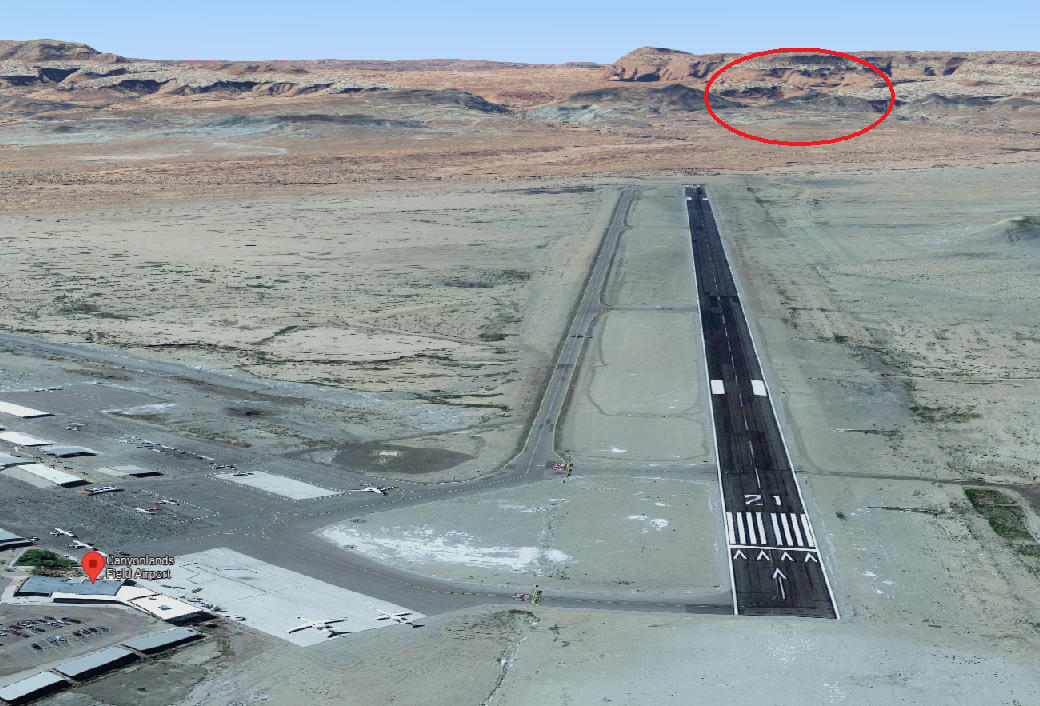
-
That picture reminds me of the Front Royal airport out in the Shenandoah Valley, west of DC.
More than one pilot has taken off from this runway at night and flown into the hills. Similar story.
I have flown there at night you don't see anything - just black. If it is a starry night that is how you can tell where the terrain isn't. On a cloudy night, be familiar with the terrain.
Front Royal:
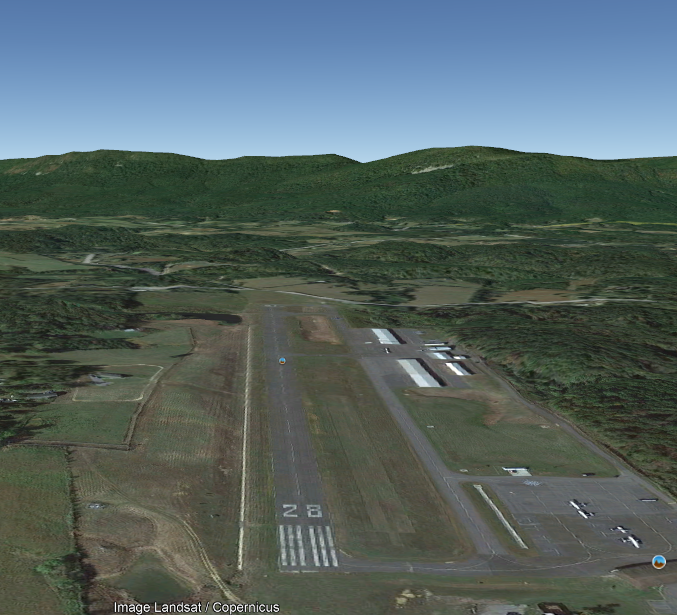
-
"I own a 1967 Cherokee 140, accident aircraft was a 1966..."
Copper, why would anyone want to own such an old airplane?
What I don't see in what I read, is a maintenance record. The engine knocked out 140 hp or something, when new. What about the day of the crash, how many hp did that engine have? I'm assuming that lack of power may have been an (the?) issue.
If I bought an old classic, couldn't I add some off-the-shelf technology, like a radar of some sort, other gadgets that would provide a warning. I mean, really, it's got a tach, so that should indicate how much power there is at full throttle. I guess it's obvious I don't know much about a small airplane, or any airplane for that matter. Although Sky King had a way cool plane! -
"I own a 1967 Cherokee 140, accident aircraft was a 1966..."
Copper, why would anyone want to own such an old airplane?
What I don't see in what I read, is a maintenance record. The engine knocked out 140 hp or something, when new. What about the day of the crash, how many hp did that engine have? I'm assuming that lack of power may have been an (the?) issue.
If I bought an old classic, couldn't I add some off-the-shelf technology, like a radar of some sort, other gadgets that would provide a warning. I mean, really, it's got a tach, so that should indicate how much power there is at full throttle. I guess it's obvious I don't know much about a small airplane, or any airplane for that matter. Although Sky King had a way cool plane!@Rainman said in Overloaded?:
some off-the-shelf technology
Most small GA planes like this probably use some kind of iPhone/iPad App. Foreflight is probably the most popular.
It has a terrain map that will turn color to show you terrain.
Avoid the red terrain.
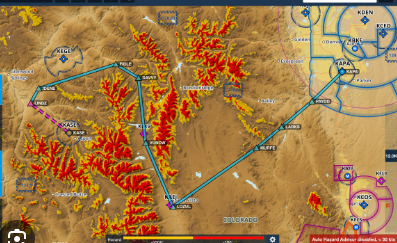
You can even get synthetic vision on your iPad/iPhone:
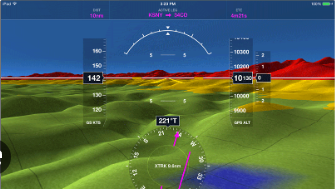
If you want something a bit more reliable you spend a few thousand and get something like this on your dashboard. This is the type of GPS I had in one of my planes. I really liked it. Most will have something like this permanently mounted, even ones that are 50 years old.
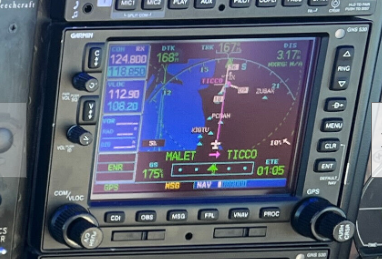
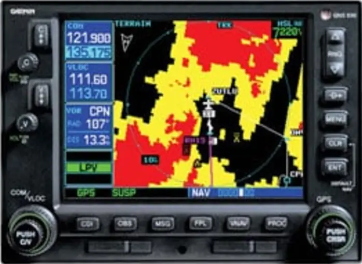
-
@copper Thanks for your insights. Interesting to read.
-
Thanks so much, Copper. You always clarify for those of us with no background. But the one area I'd find interesting: why a '60s plane? Is it like buying a 60's Chevy, the nostalgia? I would expect there to be consequences of stress over the decades, but maybe it's just the cost of buying something newer, instead of old but with new engine?
-
@89th said in Overloaded?:
I'm glad I'm not a pilot.
In my younger years, I always thought that it might be fun. Then, in 1988, our neighbor, who had property near Mackinac Island, took us for an aerial view of the island in his twin-engine plane.
I was struck at how much goddamn WORK it was. Checking this, adjusting that, making sure that...
I thought, "Hell, I do this at work. This isn't fun. This is WORK." Lost all my desire.
-
Thanks so much, Copper. You always clarify for those of us with no background. But the one area I'd find interesting: why a '60s plane? Is it like buying a 60's Chevy, the nostalgia? I would expect there to be consequences of stress over the decades, but maybe it's just the cost of buying something newer, instead of old but with new engine?
@Rainman said in Overloaded?:
why a '60s plane?
In general, small GA planes are well maintained. The FAA is pretty strict about mechanics and the work they do. All maintenance must be recorded in a log that is kept with the plane forever.
If the logs are lost the value of the plane will drop.
Older planes are not worth as much, but a good refurb can get the price back up.
One of the most important factors in pricing the plane is the number of hours on the engine. These engines generally must be overhauled or replaced every 2,000 operating hours. There is a meter on the dashboard of most planes that shows the number of hours. If the engine is getting close to overhaul time the price of the plane drops accordingly.
An overhaul for a typical Cessna 172 might cost between $15K and $25K, a wide range because there are several options.
-
Thanks much, Copper. I had no idea an overhaul cost so much. When a GA (I had to look it up) aircraft flies overhead, they don't sound like a Porsche revved up. Matter of fact, there are some that sound like they are turning rather low rpm's. Wow, $25 grand. And I would suppose the old aircraft don't have the features (quieter inside the cabin, heat and a/c, etc) or aerodynamic performance of a new aircraft. I don't recall ever hearing a GA plane overhead with a rough-running engine. I guess I now know why!